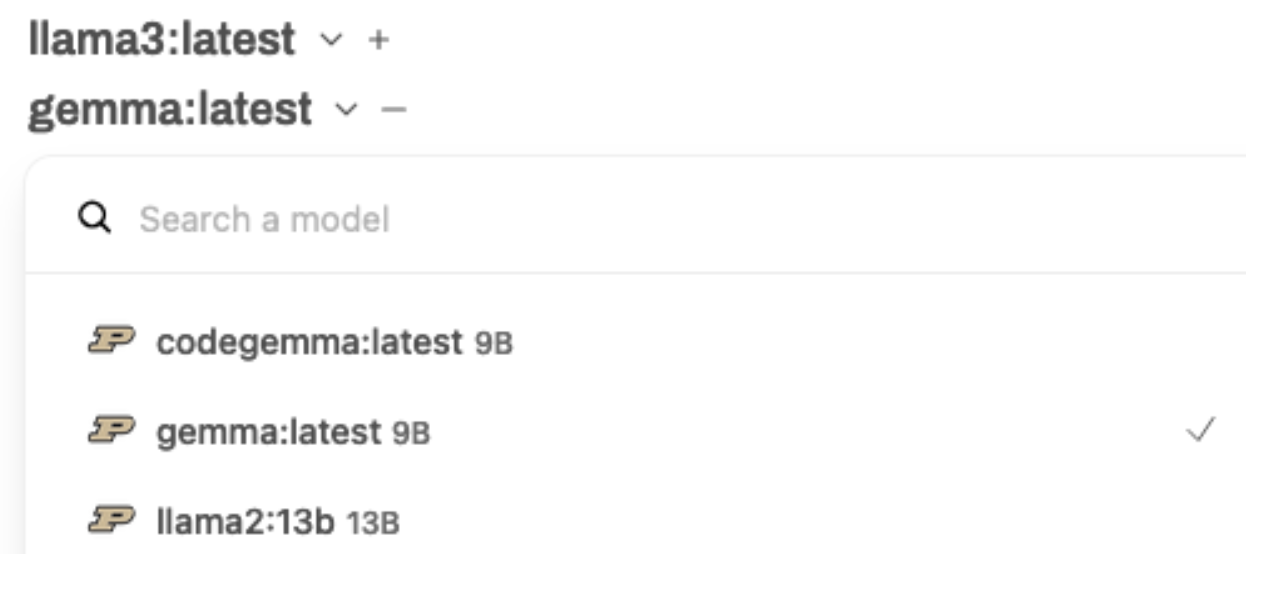Introducing AnvilGPT: Anvil’s powerful new LLM service for researchers
Purdue University’s Anvil supercomputer now offers a powerful new feature in its artificial intelligence software services—AnvilGPT. AnvilGPT is a large language model (LLM) service that makes open-source LLM models like LLaMA accessible worldwide to ACCESS researchers. Unlike other LLM services, AnvilGPT is hosted entirely with on-premises (on-prem) resources at Purdue. This means researchers have more democratized access to LLMs, as well as more control. And the best part?—it’s free.
AnvilGPT was developed by a dedicated team of research software engineers (RSEs) at Purdue’s Rosen Center for Advanced Computing (RCAC). The intent behind AnvilGPT was to provide an LLM service that researchers could easily access and use, and which negates the concern of leaking intellectual property or proprietary data. Since AnvilGPT is hosted entirely on-prem, no documents or context are uploaded into commercial cloud-hosted AI services. Chats, documents, and models are also not shared between users or used for training. Not only will researchers feel more secure in their work, but they will be able to use AnvilGPT for grant-funded work that specifically limits the transfer of data to third-party services.
“AnvilGPT is great in that it is all hosted on our servers, and utilizes the new GPUs being added through recent supplemental funding from the NSF,” says Sarah Rodenbeck, a Lead Research Data Scientist at RCAC and product lead of AnvilGPT. “Nothing is going to be used for further training of models or shared between groups, so researchers can be more comfortable uploading documents that may contain proprietary content or have restrictions on use.”
Another benefit the Anvil team wanted to provide was democratized access to the LLM service. As such, AnvilGPT is available to all ACCESS researchers at no cost. Among the benefits mentioned above, this also saves researchers from having to pay for commercial subscriptions. And since it is hosted on the Anvil supercomputer, researchers don’t need to set it up on their personal computers or laptops, giving them better functionality with more powerful results.
AnvilGPT’s user interface  (UI) is intuitive and easy to use. There are two modalities for interacting with AnvilGPT—both the UI and API—and additional functionality for both is under active development. The chat interface allows researchers to select from a list of models, including both base models (available to all users) as well as any custom models the individual researcher may have created. Users may also select multiple models to compare the output for any prompt. Any additional open-sourced models that are not already listed can be downloaded and added to AnvilGPT.
(UI) is intuitive and easy to use. There are two modalities for interacting with AnvilGPT—both the UI and API—and additional functionality for both is under active development. The chat interface allows researchers to select from a list of models, including both base models (available to all users) as well as any custom models the individual researcher may have created. Users may also select multiple models to compare the output for any prompt. Any additional open-sourced models that are not already listed can be downloaded and added to AnvilGPT.
AnvilGPT is yet another innovative tool stemming from Purdue’s persistent pursuit of excellence within the field of artificial intelligence. The release of AnvilGPT is timely considering Anvil’s newly appointed role in supporting the National Artificial Intelligence Research Resource (NAIRR) Pilot. US researchers from any scientific field can use Anvil and AnvilGPT by signing in with their ACCESS account. To apply for access to AnvilGPT, please visit: https://www.rcac.purdue.edu/knowledge/anvil/anvilgpt
Anvil is Purdue University’s most powerful supercomputer, providing researchers from diverse backgrounds with advanced computing capabilities. Funded by the National Science Foundation (NSF), Anvil supports scientific discovery by providing resources through the NSF’s Advanced Cyberinfrastructure Coordination Ecosystem: Services & Support (ACCESS), a program that serves tens of thousands of researchers across the United States.
For more information regarding HPC and how it can help you, please visit our “Why HPC?” page.
Researchers may request access to Anvil via the ACCESS allocations process. More information about Anvil is available on Purdue’s Anvil website. Anyone with questions should contact anvil@purdue.edu. Anvil is funded under NSF award No. 2005632.
Written by: Jonathan Poole, poole43@purdue.edu
